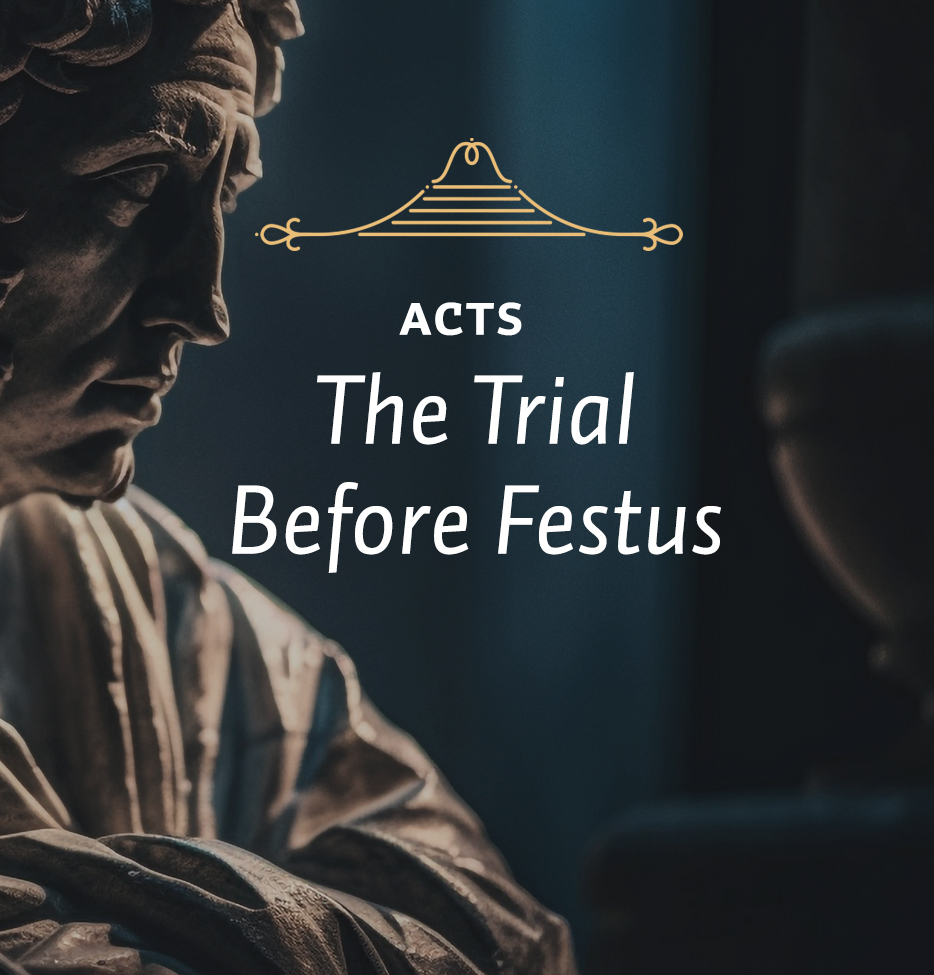The second party to the proceedings against Paul was Governor Porcius Festus. The most noticeable characteristic of this man is that, unlike Felix, he was unwilling to delay decisions. When Festus arrived in the province, it was only three days before he went from Caesarea to Jerusalem. He would have arrived by ship, which would not have been an easy trip. One would have expected him to have taken time in his capital city of Caesarea to relax and perhaps get things in order there first. But this was not his way. Jerusalem was the center of the nation, though not the Roman capital. So Festus immediately went there to confer with the Jewish leaders. Then, after spending eight or ten days with them, he made his way back down to Caesarea (v. 6). This was a man who was trying to take charge right away.
The next day, that is, as soon as he got back to Caesarea, having brought with him those who were going to accuse Paul, he convened his court and heard Paul’s case.
Festus was a good administrator. Yet he had his own serious flaw, and in this respect he was much like his predecessor. He wanted to please the people. He wanted to show the Jews a favor. A person might say, “When you’re in charge of something you have to get along with those you govern.” That is true, of course. But this was a legal matter. Paul was on trial. Any giving of favors in this situation was in reality a perversion of justice and the abuse of an innocent man.
Paul knew what was happening. That is why he exclaimed, “I have not done any wrong to the Jews, as you yourself know very well” (v. 10). If Festus had not been able to discover this on his own, he certainly would have learned it from his predecessor, since Felix had examined Paul on more than one occasion and had concluded that he had done nothing wrong. Yet “wishing to do the Jews a favor” (v. 9), the governor compromised.
How many right actions have been bartered away because those who knew to do right wanted to please someone else, or at least not offend people they considered to be important? That is not just something that happens in the world either. It is done by Christians and the church. Perhaps it has been done by you. If so, it is something to be repented of.
The trial itself is told in very brief language. Verse 7 says, “When Paul appeared, the Jews who had come down from Jerusalem stood around him, bringing many serious charges against him, which they could not prove.” Luke does not tell us what those charges were, but we can guess what they were because of what was said in chapter 24 and by the way Paul responds in verse 8. Paul answers, “I have done nothing wrong against the law of the Jews or against the temple or against Caesar.” These would have been charges of heresy (something that was contrary to God’s law), sacrilege (something done against the temple) and treason (an act against Caesar).
These are close to the charges that were brought against the Lord Jesus Christ, saying that He had violated the law by not observing the Sabbath correctly; that He was guilty of sacrilege because he had prophesied the destruction of the temple (“This fellow said, ‘I am able to destroy the temple of God and rebuild it in three days,’” Matt. 26:61); and that He had made Himself a king, thus setting himself against Caesar. It was because of his fear that the Jews would tell Caesar that he had released a rival to the imperial throne that Pilate finally consented to Christ’s death.
These accusations are made against believers in virtually any country where people feel free to attack them:
1. That they disregard the laws or customs of the nation. It is true, of course. Christians do not see things as those about them do. They do not have the same priorities. Christians have another Lord.
2. That they do not adhere to the religion of the people among whom they live. In the early church Christians were accused of being atheists because they denied the existence of the pagan gods.
3. That they are guilty of treason. Christians will not acknowledge the ultimate sovereignty of any secular state. They will try to obey its laws. But the state is not absolute for Christians. Only God is.






